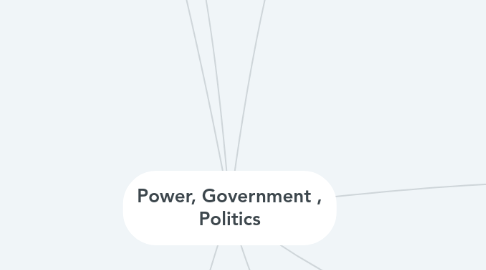Power, Government , Politics
by Huynh Thao

1. Types of power: 1. Coercive: power springs from the power holder’s ability to punish or penalize others. 2. Reward: power comes from the power’s holder ability to give something of values, such as money, responsibility, or praise. 3. Legitimate: power derives from the power holder’s specific skills or expertise. 4. Referent: power flows from the power holder’s ability to persuade or influence others. 5. Expert: power comes from the power holder’s position and duties within an organization.
2. Public good: A product or service that is available for all people to consume, whether they pay for it or not.
3. Legitimacy: The quality of being accepted as an authority, often applied to laws or those in power.
4. Power
4.1. Definition: The ability to cause others to behave as they might not otherwise to choose to do.
4.2. How is it used? People use power in different ways based on their purposes: they use power for positive or negative points. For instance, in the past, rulers used their power to unify cities or help poor people. In another hand, some have used their power to force other to complete their desire or abuse others
4.3. Authority: The legal right or power to give orders and enforce rules.
4.4. Social-contract theory: Society is based upon a shared agreement of all citizens. Citizens give up certain rights and privileges in return for the protection and mutual advantage of the state.
5. Government
5.1. Definition: Institutions and officials organized to establish and carry out public policy.
5.2. Nation-state: An independent state, especially one in which the people share a common culture. In nation-state, people have to sense of belonging to one country, even if they have different ethnic backgrounds.
5.3. Coercion: To force someone to do something by threatening them.
5.4. Polity: A society or state considered as a political unit.
5.5. The purpose of government: Important purposes of government are maintaining public order, protecting life and property, and providing public goods.
5.6. Building blocks of government: 1. Coercion: government use its power to force citizens to behave in a certain ways. For instance, Government use their threat of arrest and punishment to maintain public order and keep people secure in their homes and in public spaces. 2. Revenue: all governments need money to provide security and pay for public goods. They generally get that money from the people they govern or control.
5.7. Characteristics of nation-state 1. Territorial integrity: a nation-state occupies a specific geographic territory, with internationally recognized boundaries. 2. Stable population: a nation-state has people living permanently within its boundaries. 3. Code of laws: the people of a nation-state agree to live under a common legal system. 4. National sovereignty: a nation-state is independent and self-governing.
6. Politics
6.1. Definition: The process and method of making decisions for groups. Although, generally applied to governments, politics is also observed in all human interactions.
6.2. Institution: An established organization, especially one providing a public service, and the rules that guide it.
6.3. Characteristics of political activity: Debate, planning, report writing, compromising and arm-twisting.
7. Thao Huynh Government 1A Mr. Aaron Feb 18th, 2020


